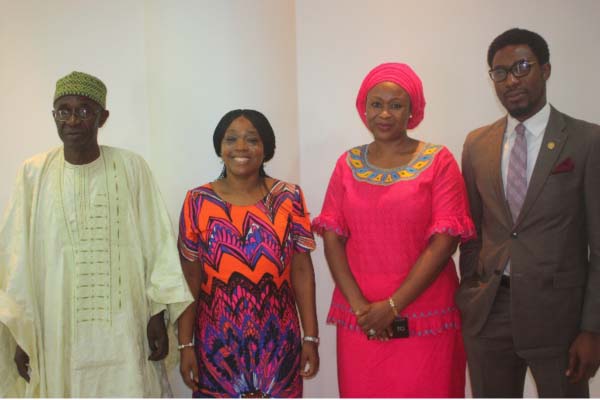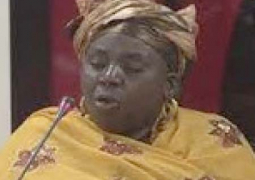
The
United Nations Children’s Fund (UNICEF) and the United Nations Population Fund
(UNFPA) welcome the pronouncement made by His Excellency President Yahya A. J.
J. Jammeh on Wednesday 6 July 2016 banning child marriage in the Islamic
Republic of The Gambia, and the 21 July 2016 enactment of the Children’s
Amendment Bill (amendment of the Children’s Act 2005) by The National Assembly,
criminalizing the act.
This
significant turning point in development for the country came less than a year
after the unprecedented presidential pronouncement in December 2015 banning
Female Genital Mutilation (FGM) in The Gambia.
The
amendment of the Children’s Act 2005, makes the marriage of any child below the
age of 18 years illegal in the country with a penalty of up to 20 years
imprisonment for both the parents and husband of the child.
Child
marriage is a violation of the rights of girls and an obstacle to attaining the
UN Sustainable Development Goals, especially Target 5.3 which calls for the
elimination of all harmful practices, including child, early and forced
marriages and female genital mutilation.
Unfortunately,
many girls in The Gambia are at risk. Latest figures show that over 40 per cent
of women aged 20 – 49 in The Gambia were married before the age of 18 years,
while 16 per cent of women of the same age cohort married before they turned
15.
Child
marriage often prevents girls from enjoying social and economic opportunities,
contributes strongly to the continued cycle of poverty in poor communities and
perpetuates the high incidence of infant and maternal mortality. Further, many
girls are at risk of developing fistulas during delivery which invariably leads
to social stigma and isolation.
“…the
silenced voices of the thousands of young women and girls forced into marriage
before their eighteenth birthday signify complacency and discrimination. Majority
are denied the opportunity of growing as human capital, as an asset for our
communities and country and this unfortunately translates to lost opportunity.
This ban and enactment of a law criminalizing Child Marriage is a bold step in
ensuring that every girl child in The Gambia reaches the pinnacle of her
potentials...,” said Mr Kunle Adeniyi, UNFPA The Gambia Chief of
Operations/Head of Office.
Appreciated
by the United Nations (UN) in The Gambia, this ban follows the recent launch of
activities under the African Union Campaign to End Child Marriage in Africa.
“Ending
child marriage is a daunting but possible task. It is recognition of this fact
that led to the March 2016 signing of the new UNFPA-UNICEF Global Programme to
Accelerate Action to End Child Marriage,” said Mrs Sara Beysolow Nyanti, UNICEF
Resident Representative in The Gambia.
She
added that this is the second global UNFPA-UNICEF programme following that of
FGM/C; and building on the results and lessons learned from the FGM/C joint programme,
both agencies will work to support the government to accelerate action on
ending child marriage in The Gambia.
The
Government of The Gambia has in place policies and programmes addressing the
practice, and works closely with national and international partners, using
proactive and multi-faceted strategies to reduce and ultimately end the
practice.
Her
Excellency the First Lady, Madam Zineb Jammeh through her Foundation, Operation
Save the Children and with the Department of Social Welfare, has been at the
forefront of advocacy efforts to end the practice, leading to the launching of
the African Union’s End Child Marriage Campaign in the country on 16 June
2016.
With
all that has been done, there is still some more work to do. The UNFPA-UNICEF
joint programme, through its partnership with the Government will engage
stakeholders at all levels to ensure that all efforts are galvanized in ending
child marriage.
At
the policy level, the UN will strengthen its current efforts with government to
ensure fully strengthened national legislations, policies, guidelines and tools
necessary to guide programmatic work on ending child marriage.
Support
will be provided for the popularization of the recently enacted law to
adequately protect girls from child, early or forced marriage, and continue to
work towards a more conducive child protection environment in the country.
At
the community level, the UN will continue its support for grassroots advocacy
to address many of the cultural practices and behaviors that place young women
and girls at increased multiple health risks, including HIV.
Source:
UNFPA




